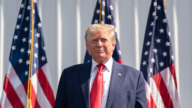【新唐人2013年05月09日讯】美国国防部5月6号,发布“2013年中国军力和防务发展报告书”。报告除重点介绍中国空军和海军力量增长,还曝光了中国去年的军费支出,数字比北京公布的高出许多。除此之外,美国国防部首次公开指责中国黑客攻击。美国对中共进行的网路攻击,要展开还击了吗?请看专家的分析。
美国国防部本周一,在华盛顿发表了一份将近100页的报告。报告中说,在过去几年,北京发起了持续长久的黑客攻击活动,目地是更加全面的了解美国的外交政策及军力。
报告说:“2012年,世界各地的大量计算机系统,包括美国政府名下的系统,持续成为侵入目标,其中一些看来可直接归咎于中国(共)政府和军方。”
华盛顿之前曾呼吁北京,应该对偷窃网络信息的行为加以管制。但当时的美方代表只提到涉及经济领域的黑客袭击。这是美国政府在历史上第一次“明确指责”中共对美国发起网路攻击。
美国《中国事务》杂志主编伍凡:“中共的网络攻击,它并不想破坏你,它首先目前的目标,不是破坏你,而是想要偷你的东西。”
据了解,美国遭受的网路间谍活动有90%源自中国,但这次五角大楼向国会提交的年度“中国军力报告”中,如此直白的指责,非比寻常。
美国网络安全公司(Mandiant)曾表示,位于上海浦东的61398部队,可能是中国大陆官方的“黑客部队”。美国中文杂志《中国事务》主编伍凡表示,美国在几年前,开始对中共的黑客活动提出警告,但是,中共不里不睬,继续攻击和偷袭情报。伍凡说,美国可能开始反击了。
伍凡:“现在美国人已经受够了,不耐烦了,已经知道你再这样做下去,对它警告是没有用的。所以美国人下一步一定会反击。现在这次2013 年的国防部对美国国会的军事报告里边,我看明明白白的指名道姓的提出来,就是下一步要开始还击了,这个还击,美国手段是足够的,所以一旦反击起来,中国它能不能受得了,我不知道。”
美国《华盛顿邮报》5月6号也报导说,五角大楼发出美国政府对北京至今为止最清晰的公开指控。
美国国家安全局(National Security Agency)局长基思.亚历山大 (Keith Alexander) 上将,同时兼任军方快速壮大的“网路战”司令部指挥官。他最近告诉国会,他正在创立12个以上的网路攻击部门,必要时针对外国的计算机网路发动攻击。
美国国防部的报告指出,中共发动网路间谍行为的目地是,为中国的武器以及技术行业收集美国军备的信息,同时,窥探美国政府在诸多中国问题上的立场,并了解美国是怎样看待中国军队。报告指称,通过黑客攻击,中国的军事战略家们能够对美国的军力有所了解,而这些信息“在危机爆发时则能够派上用场”。
此外,报告中还披露,中国去年的军费支出在1020亿到1630亿欧元之间,比北京公布的官方数字要高出许多。中共当局今年3月公布的军费才900亿欧元。
相对于中国公布的数字来讲,伍凡认为美国公布的数字更接近实际。
伍凡:“我个人认为可能还不止这个,因为中国这么样的大力发展海面、海上以及陆地、空中太空,整个立体,再包括网路,它全面的来进行推动发展,它不仅仅是军事工业,还发展它的材料,还包括交通,运输,你要去挖山坑,储藏武器”
近年来,中国大陆军费问题一直受到外界的关注和质疑,国际社会普遍认为,中共的实际军费开销,应该是公布的国防预算的两倍到三倍。
采访编辑/常春 后制/李勇
United States Set to Counterattack China’s Hackers
On May 6th, the U.S. Department of Defense published
a report on China’s military power and defense in 2013.
It highlighted the increase in China’s air and naval forces,
including its military spending,
which was much higher than that in Beijing’s report.
In addition, the U.S. Department of Defense publicly
accused China’s hackers of cyber-attacks, for the first time.
Will the US be fighting back against China’s cyber-attacks?
—Let’s see the expert analyses.
The U.S. Department of Defense in Washington
has released a near 100-page report saying that
Beijing has been launching long-term hacking activities
for years,
to get a comprehensive understanding of U.S. foreign policy
and military power.
It reported: “In 2012, a large number of computer systems
worldwide, including many of the U.S. government systems,
have been targeted by hackers; some of which seemed to
directly come from the Chinese government and military."
Washington had previously called on Beijing
to control the hacking activities of network information.
However, the U.S. representative at the time
referred only to attacks of the economic field.
Now, for the first time in the history, the U.S. government
has explicitly accused the Chinese Communist Party (CCP)
of launching cyber-attacks on the United States.
[Wu Fan, Editor-in-Chief of Chinese affairs]:
“The goal of the CCP’s network attacks is not to destroy
its target, but to steal from it."
It’s understood that 90% of internet espionage
in the U.S. has come from China,
but such a blatant accusation in the annual China Military
Power Report is unprecedented.
Network security company Mandiant says, troops in Pudong,
Shanghai, are likely to be mainland official hackers.
Wu Fan says, the US began warning the CCP
regarding hacking activities some years ago
but the CCP have ignored the warnings and have continued,
so the United States may now begin fighting back.
[Wu Fan]: “Americans have had enough and
they already know that
the Chinese will keep attacking—warnings are useless;
the next step for the Americans will be to fight back.
Now, in the U.S. military report to the Congress,
the Department of Defense has openly named the offender.
This means that the US is ready to fight back
and they will be very sufficient in counterattacking.
Once this cyber war begins,
China will not be able to stand it."
On May 6th, the Washington Post also reported that
the Pentagon had issued its most clear public accusation against Beijing.
Admiral Keith Alexander, the director of the U.S. National
Security Agency and commander-in-chief of the cyber war,
told Congress that he’d established over 12 network attack
departments to counterattack foreign networks, if necessary.
The U.S. Department of Defense report says that
the goal of the CCP’s network espionage is to collect
information on U.S. armaments, weapons, and its technology industry.
Meanwhile, the CCP wants to understand the U.S.’position
on many issues and their thoughts about the Chinese army.
Through cyber-attacks, China’s military strategists
are trying to gain understanding of the U.S. military power,
which will come in handy when there’s a crisis."
The report also reveals that China’s 2012 military spending
was between 102-billion to 163-billion Euros;
much higher than the figures Beijing announced this March,
which claimed the spending to be only 90-billion Euros.
Wu Fan believes that the figures released
by the United States are much closer to reality.
[Wu Fan]: “I think the figure may be even higher than that
China has vigorously developed its sea, land and air space,
including networks—such a comprehensive development
isn’t limited to the military industry but
includes development of material, trafficking,
transportation and cave-digging to store weapons."
In recent years, the issue of mainland China’s
military spending has concerned the outside world.
The international community largely believes that the CCP’s
actual military spending is 2 to 3 times higher than it claims.































